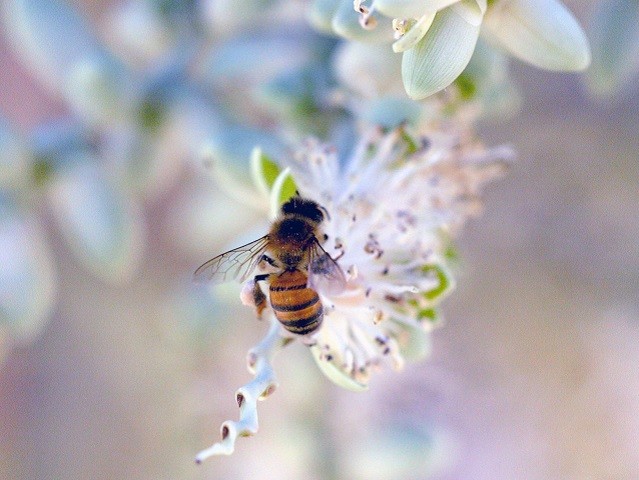Pollinators play role in renaturing our cities
What do cucumber, almonds, onions and avocados have in common? Besides being potential ingredients for your next salad, all those plants need pollinators to reproduce: animals that move pollen from the male part of the flower to the female one. Bees, bats, lizards or ants are just some examples of pollinators, and they are so important that if they went extinct, your dinner salad wouldn't be the only thing to disappear. They are a crucial part of our food system: 75% of cultivated and 90% of flowering plants are pollinated by them. They also protect animal biodiversity by serving as food for other species and attracting predators to help in the control of undesired pests. Moreover, they are clear indicators of air and water quality. In a polluted environment, flowers and plants are the first to become affected: this causes a reduction in pollinators, which is the signal that something bad is happening. According to FAO, their extinction rates are 100 to 1,000 times higher than normal due to human impacts such as chemical use, intensive farming and increasing urbanisation. Higher temperatures, extreme climate events and changes in flowering time also hinder pollination. The insects are trying to adapt to a new habitat, but we're asking them to do it at an unprecedented rate. Helping pollinators to survive is one of the issues addressed by the European project URBAN GreenUP, which is testing more than forty solutions inspired by nature to mitigate the effects of climate change, improve air quality and water management, and increase the sustainability of cities. They are currently being implemented in Liverpool in the UK, in Valladolid in Spain and Izmir in Turkey, and they will be replicated in other cities all over the world. "We're testing both more traditional types of solutions, like tree planting or pollinator gardens, which people may be more familiar with," explains Juliet Staples, senior project manager of URBAN GreenUP in Liverpool, UK. "And we're also testing some more unusual types of nature-based solutions, like floating ecosystems or tree sustainable urban drainage systems, for example," she adds. The researchers are analysing different land types for pollinators. "We've got six quite distinct sites; some are very shady, some are hard-surfaced. For example, we've got a site that is very coastal and exposed. In contrast, another one is very urban, in the middle of a housing area. So, each of them will have different pollinator preferences," explains the appointed contractor, Elaine Cresswell, landscape architect and director of the consulting company reShaped. Pollinators need an environment free of chemicals, toxic materials, with an array of flowers that bloom at different seasons, so they can find safe nesting habitats, water and food all year-round. It is also paramount to ensure the connectivity between their habitats to ease the insects' displacement and activity. In this context green road verges are an important nature-based solution considered by the project, as they provide hotspots for pollinators and corridors to link the ecosystems within the urban and periurban areas. So far, the results of the project are still preliminary. "The interventions are increasing the number of flowers and we're trying to find out if they are also affecting the number and diversity of pollinators," explains Stella Shackel, data officer of the project in Liverpool. Although data collection is still in the early stages, scientists have already got some insights. Read the full article on: https://www.urbangreenup.eu/news--events/news/pollinators-play-role-in-renaturing-our-cities.kl
Keywords
bees, pollinators, renaturing, climate change, pollution, biodiversity, green, water quality



